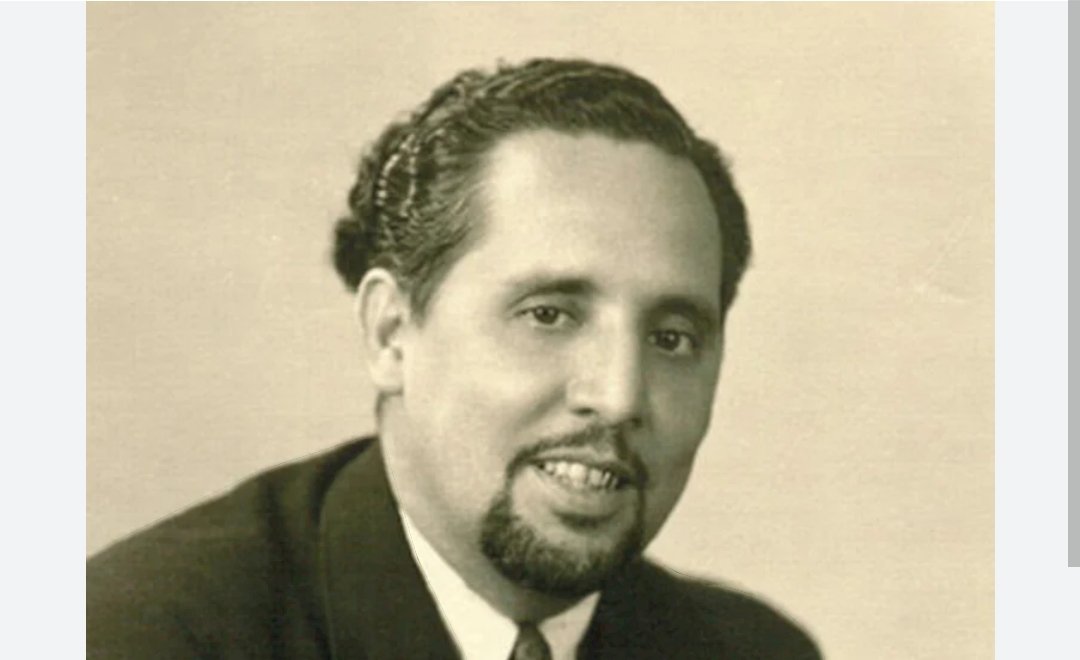News
Raoul A. Cortez: Pioneering Advocate for Hispanic Media and Civil Rights

Introduction
Raoul A. Cortez is a name synonymous with the struggle for Hispanic representation in American media and the broader civil rights movement for Latinos in the United States. As a pioneering entrepreneur, Cortez is best known for founding the first Spanish-language radio and television stations in the country, which became instrumental in advocating for the visibility, culture, and rights of the Hispanic community. His contributions are not merely limited to media but also extend into social justice, where he tirelessly worked to improve the conditions of his fellow Mexican-Americans.
This analysis will provide a detailed examination of Raoul A. Cortez’s life, his groundbreaking work in media, and his enduring legacy in both the broadcast industry and civil rights. Through understanding Cortez’s role in the historical context of his time, we can see how his achievements laid the groundwork for greater Hispanic representation and empowerment in contemporary society.
Early Life and Influences
Raoul A. Cortez was born on January 17, 1905, in Jalpa, Zacatecas, Mexico. He immigrated to the United States with his family, eventually settling in San Antonio, Texas. Growing up in the early 20th century, Cortez witnessed firsthand the discrimination and marginalization that Mexican-Americans faced in both public and private spheres. His early life experiences, along with the cultural richness of the Hispanic community in Texas, were significant in shaping his resolve to fight for greater representation and equity.
San Antonio, at the time, was home to a growing population of Mexican-Americans, yet their presence in mainstream media and public life was virtually non-existent. Discriminatory policies, segregation, and widespread racial prejudice left the community disenfranchised and without a platform to address their needs or share their cultural heritage. This social environment fostered a determination in Cortez to give voice to the voiceless through media—a medium that could educate, inform, and unite his community.
The Founding of KCOR Radio
In 1946, Raoul A. Cortez took a monumental step by founding KCOR-AM, the first full-time Spanish-language radio station in the United States. This was no small feat, as the landscape of American media at the time was overwhelmingly dominated by English-language content, with little regard for the growing Hispanic audience. Cortez faced multiple challenges, from securing funding to dealing with regulatory hurdles and resistance from mainstream media outlets that were skeptical of the market for Spanish-language programming.
Despite these obstacles, KCOR quickly proved to be a vital asset to the Hispanic community. Through its broadcasts, the station offered a blend of music, news, and talk shows that catered specifically to Mexican-Americans. It became a cultural hub where people could stay informed about issues affecting their community, hear the latest developments from Latin American countries, and feel a sense of pride in their heritage.
One of Cortez’s greatest achievements with KCOR was its ability to serve as an educational tool. The radio station provided information on issues such as labor rights, voter registration, and access to social services. At a time when many Mexican-Americans were excluded from mainstream political discourse, KCOR gave them a voice and platform to discuss and address their concerns. The station also fostered a sense of identity and unity within the community, playing a crucial role in cultural preservation by promoting Mexican music, folklore, and traditions.
The Birth of Hispanic Television
Not content with revolutionizing radio, Cortez set his sights on a new frontier: television. In 1955, he launched KCOR-TV in San Antonio, the first full-time Spanish-language television station in the U.S. Much like his venture into radio, this was a groundbreaking move, as Hispanic audiences were largely ignored by mainstream television networks. Cortez’s foray into television allowed him to expand the reach of his message, bringing Hispanic content into homes across Texas.
KCOR-TV, later renamed KWEX-TV, was a bold experiment that offered news, entertainment, and cultural programming tailored to the Hispanic community. By offering a visual medium that reflected the language and culture of Mexican-Americans, Cortez helped bridge the gap between a marginalized population and the broader media landscape. Through the programming on KWEX-TV, Cortez provided a more inclusive view of American society, ensuring that the stories and lives of Hispanics were no longer invisible.
Moreover, KWEX-TV became a launching pad for Hispanic journalists, actors, and producers, giving them opportunities to work in an industry that had historically excluded them. The station was also significant in its role of fostering cross-cultural communication by providing programming that appealed not just to Mexican-Americans but also to the broader Latin American diaspora living in the U.S.
Overcoming Challenges and Resistance
Raoul A. Cortez’s success in launching both KCOR and KWEX was not without its share of challenges. In the early days, he faced significant opposition from Anglo business interests and media outlets who viewed the Hispanic market as unprofitable. Advertising revenue was difficult to secure, as many companies did not see the value in reaching a Spanish-speaking audience. Additionally, Cortez had to navigate the legal and regulatory hurdles imposed by the Federal Communications Commission (FCC), which was not accustomed to licensing foreign-language media outlets.
Cortez’s resilience in the face of these obstacles is a testament to his determination and belief in the importance of Hispanic media. He worked tirelessly to convince advertisers of the economic potential of the Hispanic market, demonstrating that this growing demographic was a vital and lucrative audience. Through his efforts, he helped change the perception of Hispanic media, paving the way for the proliferation of Spanish-language television and radio networks across the United States.
Raoul A. Cortez’s Role in Civil Rights
While Cortez is best known for his contributions to media, his work extended far beyond broadcasting. He was a passionate advocate for civil rights and social justice, particularly for Mexican-Americans and other marginalized Hispanic groups. His media platforms became crucial tools in promoting political awareness and mobilizing the Hispanic community to fight for their rights.
Through KCOR and KWEX, Cortez played a pivotal role in encouraging voter registration among Mexican-Americans, a demographic that had been largely disenfranchised due to literacy tests, poll taxes, and other discriminatory practices. Cortez used his media outlets to inform the community about their rights and the importance of participating in the democratic process. This effort contributed to the growing political power of the Hispanic community in Texas and beyond.
In addition to his work in voter registration, Cortez was deeply involved in advocating for labor rights. The Mexican-American community, particularly in the Southwest, was often subject to poor working conditions, low wages, and unfair labor practices. Cortez used his media platform to highlight these issues and push for reforms that would benefit the Hispanic workforce. His efforts aligned with the broader Chicano Movement, which sought to address the social, economic, and political injustices faced by Mexican-Americans.
Cortez was also a supporter of the League of United Latin American Citizens (LULAC), the oldest and one of the most influential Hispanic civil rights organizations in the U.S. He worked closely with LULAC to promote education, equality, and civil rights for Mexican-Americans. Cortez’s media empire served as a megaphone for LULAC’s message, amplifying its campaigns and initiatives to a wider audience.
A Legacy of Empowerment
Raoul A. Cortez passed away in 1971, but his legacy endures in the form of a more empowered and visible Hispanic community. His work in media laid the foundation for the growth of Spanish-language networks such as Univision and Telemundo, which continue to serve millions of Hispanic viewers across the United States today. These networks have become vital sources of news, entertainment, and cultural preservation for the Latino community, all thanks to the groundwork laid by Cortez.
Beyond the world of media, Cortez’s contributions to civil rights have had a lasting impact on the political and social landscape of the United States. His efforts to promote voter registration, labor rights, and education for Mexican-Americans have helped to shape the trajectory of the Hispanic civil rights movement. Today, Hispanic Americans are an increasingly powerful political force, and much of that can be traced back to the efforts of pioneers like Raoul A. Cortez.
Cortez’s legacy is also evident in the opportunities he created for Hispanic professionals in the media industry. Many of the journalists, broadcasters, and producers who got their start at KCOR or KWEX went on to have successful careers in mainstream media, bringing greater diversity to the industry and ensuring that Hispanic voices continue to be heard.
Conclusion
Raoul A. Cortez was not only a media pioneer but also a champion for the rights and representation of the Hispanic community. Through his groundbreaking work in radio and television, Cortez gave Mexican-Americans a platform to express their culture, voice their concerns, and participate in the public discourse. His contributions to civil rights, particularly in the areas of voter registration and labor rights, helped to empower a community that had long been marginalized.
Cortez’s influence extends far beyond the media industry, and his legacy continues to inspire new generations of Hispanic leaders, journalists, and activists. His life’s work demonstrates the power of media as a tool for social change, and his unwavering commitment to his community serves as a reminder of the importance of representation, advocacy, and perseverance in the face of adversity.
Raoul A. Cortez’s story is one of resilience, innovation, and dedication, and his contributions to both media and civil rights will be remembered as a critical chapter in the history of Hispanic Americans in the United States.
